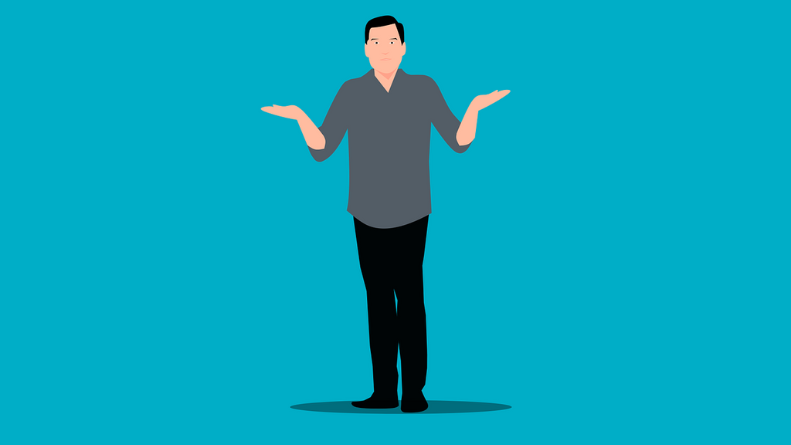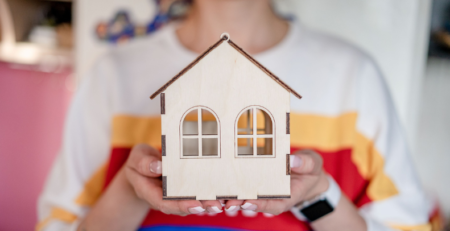Choosing Between Houses and Apartments
Have you ever found yourself at the crossroads of deciding whether to buy a house or an apartment? It’s a choice that shapes not only your immediate comfort but also your financial health and lifestyle for years to come. Jamie Johnson, CEO of FJP Investment, aptly puts it, “The decision between houses and apartments isn’t just about where you live; it’s about crafting the lifestyle and future you envision.” In this exploration, we’ll navigate through the various factors influencing this crucial decision, ensuring you’re equipped to make the best choice for your circumstances.
Financial Aspects: Weighing Your Options
Embarking on the path to homeownership is indeed a journey paved with numerous financial factors. Whether your heart is set on a cozy apartment or a sprawling suburban home, understanding the economic impact of your choice is crucial. Let’s start by dissecting the financial aspects, breaking them down into manageable insights.
Initial Investments: The first step in purchasing any property is the down payment, a significant sum that varies depending on the property’s value. Generally, the down payment for a house in the UK is higher due to their typically greater market value compared to apartments. It’s essential to plan for this initial cost and consider how it aligns with your savings and financial goals.
Mortgage Matters: The journey doesn’t end with the down payment. Mortgages are the next big financial consideration. While the Bank of England sets a base rate, actual mortgage rates can vary. This variance depends on numerous factors, including the lender’s terms and the property type. Hence, shopping around for the best mortgage deal becomes a pivotal step. Consulting with a mortgage advisor can provide clarity and help you secure a favourable rate.
Ongoing Expenses: Once you’ve moved in, the financial responsibilities don’t stop. Ongoing costs like maintenance, utilities, and council tax need consideration. Houses often bring higher maintenance costs, given the larger space and additional elements like gardens. In contrast, apartments might come with service charges, albeit typically lower utility bills due to their smaller size and energy efficiency.
Investment Potential: Finally, consider the long-term investment value. Houses, especially freehold, often offer better investment potential as they include land ownership. However, this doesn’t discount apartments, which can be lucrative investments, especially in sought-after urban areas. The key is to weigh these factors against your long-term financial goals.
Lifestyle and Space: What Do You Really Need?
When it comes to choosing your living space, it’s not just about walls and roofs; it’s about what happens inside them. Your lifestyle preference plays a significant role in determining whether a house or an apartment is right for you.
Family Size and Space Needs: Larger families or those planning to expand often find houses more appealing due to the additional space, including multiple bedrooms and possibly a garden. However, for singles or couples, an apartment might be just the right size, offering a cozy and manageable living space.
Outdoor Preferences: The need for outdoor space is another crucial aspect. A house typically provides private outdoor areas, ideal for gardening, children’s play areas, or simply enjoying the open air. Apartments, while sometimes offering balconies or communal gardens, generally offer less private outdoor space.
Location, Location, Location: Urban Buzz vs Suburban Peace
Indeed, the significance of location in property choice cannot be overstated. Whether opting for a house or an apartment, where it’s situated will greatly influence your daily life.
Proximity to Essentials: Living in an apartment often means being closer to the heart of the city. This proximity is ideal for those working in city centres or enjoying urban living, with easy access to a plethora of amenities, from restaurants to theatres. Conversely, houses are more commonly found in suburban or rural areas, offering a quieter environment, often preferred by families or those seeking a more laid-back lifestyle.
Urban vs Suburban Lifestyle: Choosing an urban apartment often means embracing a fast-paced lifestyle, with everything within reach. It’s a world of convenience, but it can also come with the hustle and bustle of city living. On the flip side, suburban or rural houses offer a more tranquil setting, often with more space, both inside and out. This setting is typically quieter and can be more conducive to community living.
In each of these sections, the underlying message is clear: the decision between a house and an apartment is multifaceted, involving a careful balancing act of financial considerations, lifestyle preferences, and location priorities.
Unique Amenities and Flexibility: What’s on Offer?
When it comes to choosing your home, the amenities and flexibility it offers can significantly influence your decision. Let’s delve into what houses and apartments have to offer in terms of amenities and the flexibility they provide.
Shared Amenities in Apartments: Apartments often come with the allure of shared amenities. Imagine having a gym, swimming pool, or a community hall right within your building. These facilities can be a major draw, offering convenience and social opportunities without leaving the comfort of your complex. Moreover, some apartment buildings also provide additional services like concierge or security, adding an extra layer of comfort and safety.
Privacy and Personalization in Houses: On the other hand, houses provide a different kind of luxury – privacy and the freedom to personalize your space. Owning a house often means having your own yard, where you can create your own garden or even install a private pool. This personal space allows for a level of customization and expansion that is typically not feasible in an apartment setting.
Remodelling Potential: This brings us to the remodelling potential of both options. Houses generally offer more flexibility for significant renovations and extensions. Whether it’s adding a new room, refurbishing the kitchen, or creating an outdoor living area, houses offer the scope to mould your property to your evolving needs. Apartments, while they can be renovated internally, usually have restrictions when it comes to structural changes due to shared walls and spaces.
Pet Ownership Considerations: Lastly, pet ownership is another aspect to consider. Houses often provide a more conducive environment for pets, thanks to private outdoor spaces and generally fewer restrictions. In contrast, apartment living might come with specific rules and limitations concerning pet ownership, and the lack of private outdoor space can sometimes be a challenge for pet owners.

The Future in Focus: Long-term Considerations
When deciding on a property, it’s crucial to look beyond the present and consider your long-term aspirations and needs.
Equity Building and Investment: One of the key long-term considerations is building equity. Houses typically appreciate in value more consistently than apartments, partly due to land ownership. If your goal is to build equity and possibly sell for a profit in the future, a house might be a more suitable option. However, apartments in prime locations can also be valuable investments, especially if you’re looking for something that requires less maintenance and can offer rental income.
Seeking Stability vs Embracing Mobility: Your lifestyle aspirations also play a significant role. If you’re looking for stability and a long-term home where you can put down roots, perhaps raise a family, a house might be more appealing. In contrast, if you anticipate a need for mobility, whether due to career changes or a desire for a nomadic lifestyle, an apartment could be more suitable. Apartments can be easier to sell or rent out, especially in urban areas, offering a level of flexibility that might align better with a more transient lifestyle.
Practical Realities: Constraints and Opportunities
The decision between a house and an apartment is not made in a vacuum; it’s influenced by various practical constraints and opportunities.
Market Availability: One of the first constraints you’ll encounter is market availability. What’s available in your preferred location and within your budget will play a significant role in your decision. While apartments dominate urban landscapes, offering modern living spaces, houses are more prevalent in suburban and rural settings, often providing larger living spaces and outdoor areas.
Understanding Leasehold vs Freehold: In the UK, the distinction between leasehold and freehold properties is crucial. Apartments are typically leasehold, meaning you might face certain restrictions and ongoing costs like ground rent or service charges. Houses, more often freehold, offer greater control over your property but also come with increased responsibilities for maintenance and repairs.
Commuting and Transportation: Another practical aspect to consider is your daily commute and transportation needs. Living in an apartment in the city often means easier access to public transport, making commuting less of a hassle. On the other hand, living in a suburban house might require owning a car, which adds to your expenses and also raises considerations about parking availability both at home and work.
In each of these sections, we’ve explored the unique offerings, long-term considerations, and practical realities of choosing between a house and an apartment. Understanding these factors is key to making a decision that aligns not just with your current needs but also your future aspirations and lifestyle.
Making the Decision: Consulting the Experts
After carefully considering the financial, lifestyle, and practical aspects of your property choice, the next crucial step is to seek expertise from professionals in the field. This part of your journey involves interacting with mortgage advisors, real estate agents, and utilizing various tools that can aid your decision-making process.
Mortgage Advisors: Understanding Your Financial Capacity: One of the first experts to consult is a mortgage advisor. They can offer invaluable insights into what you can realistically afford. A mortgage advisor will review your financial situation, including income, savings, and existing debts, to give you a clear picture of your borrowing capacity. They can also explain the different types of mortgages available, help you understand the terms and conditions, and guide you through the application process.
Estate Agents: Gaining Local Market Insights: Estate agents are another crucial source of information, especially when it comes to local market conditions. They can provide detailed information about the areas you’re interested in, including future development plans, local amenities, and average property prices. Estate agents can also help you understand the current market trends, whether it’s a buyer’s or seller’s market, and how that might affect your buying process.
Utilizing Tools: Mortgage Calculators and Property Searches: In today’s digital age, various online tools can be incredibly helpful. Mortgage calculators, for instance, can give you an estimate of your potential monthly repayments, helping you budget effectively. Property search websites are another valuable resource, offering the ability to filter properties based on your specific criteria, such as location, price, size, and more. These tools provide a great starting point and can help you narrow down your options before you start visiting properties in person.
Conclusion
Deciding between purchasing a house or an apartment is a multifaceted decision that demands thorough contemplation of numerous factors. It’s a process that involves more than just choosing a place to live; it’s about selecting a space that resonates with your lifestyle, financial goals, and long-term aspirations.
By meticulously evaluating your financial situation, understanding your lifestyle needs, considering your long-term objectives, and acknowledging the practicalities of each option, you’re setting yourself up for a decision that not only meets your current needs but also supports your future goals. Remember, the right property should not only provide a roof over your head but also be a place that mirrors and enhances your way of life.
This journey, while sometimes daunting, is also an exciting opportunity to shape your future. With careful planning, expert advice, and thoughtful consideration, you can find a home that truly aligns with your personal and financial aspirations. The path to finding the perfect home might be complex, but it’s undoubtedly a rewarding venture that paves the way for a fulfilling and stable future.
ARE YOU READY TO START INVESTING?
Subscribe to our mailing list now for exclusive deals, investment guides and the latest information from the property market.







